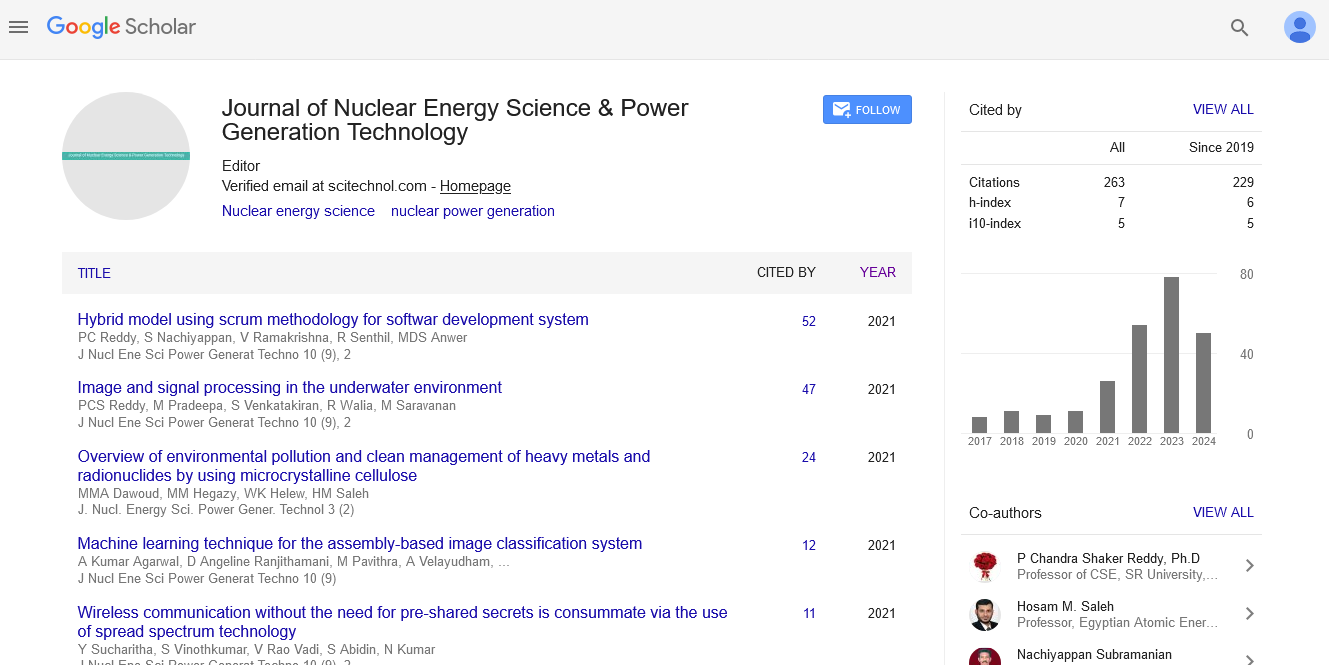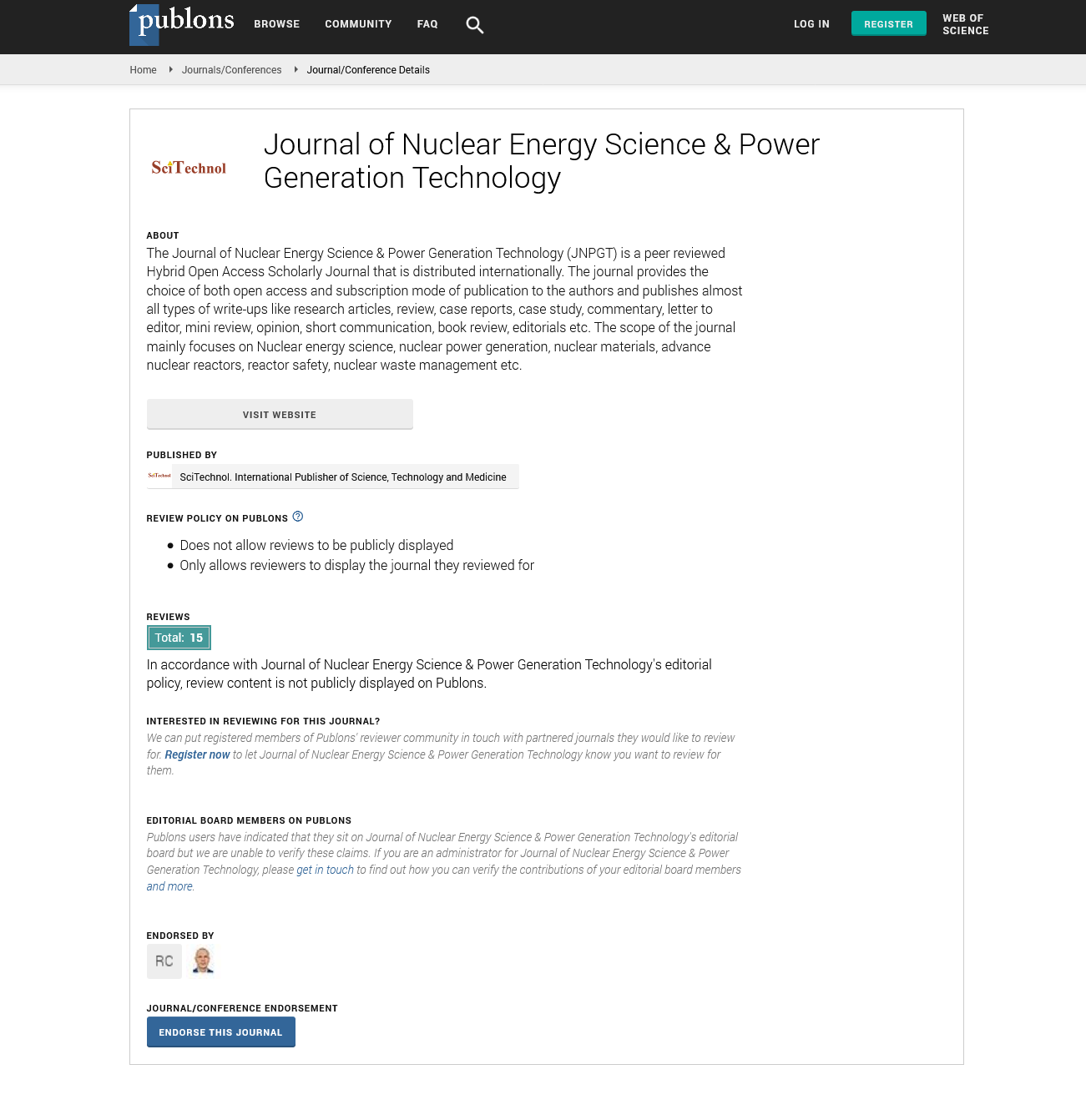Bioenergy in Germany: Technologies, perspectives and challenges
Rafal Strzalka, Dietrich Schneider and Ursula Eicker
Stuttgart Technology University of Applied Sciences, Germany
: J Nucl Ene Sci Power Generat Technol
Abstract
Bioenergy is so far the most important renewable energy source in Germany. This can be explained above all by the availability of numerous proven technologies and processes developed for energy generation from biomass. Furthermore the advantage of biomass lies in the possibility of direct substitution of fossil fuels which creates numerous perspectives for the implementation of new bioenergy project within the existing energy infrastructure. Above all biomass also represents a form of stored solar energy, which can be used efficiently according to the current energy demand. The results summarized in the proposed study provide an overview of the role of biomass in the German energy mix, with a particular focus on the renewable energy sector. Furthermore, the technologies for energy generation from biomass, their main indicators and properties are presented. The main focus is placed on the technologies for decentralized generation of power and heat, since these technologies achieve relatively high conversion efficiency, can be characterized by low transport loses and fulfill the criteria of economically feasible operation. In addition, the perspectives and barriers for the successful implementation of new bioenergy projects will also be described and presented in the paper. These analyses will provide particularly important results in view of the changed energy policy system conditions within the framework of the last EEG amendment. In particular the influence of the energy policy issues and their influence on the bioenergy sector will be discussed on the basis of the two most important technologies: Biogas plants and combustion-based CHP plants. The publication also analyses and describes the success factors which determine the increasing application of bioenergy technologies. Subsequently, the aspects of the integration of biomass into energy systems and its various facets will be discussed. Concerning this matter, the main challenge is the achievement of the energy policy objectives and the maintenance of the positive sector growth despite the worsening of the general economic conditions and system-technical requirements. Finally, as a result of these considerations the final part of the study is devoted to questions of efficiency enhancement, system optimization and infrastructure adaptation, which are crucial for the efficient implementation of bioenergy within innovative energy supply systems.
Biography
Rafal Strzalka has been working at the Stuttgart University of Applied Sciences since 2002. As part of his work, he was involved in numerous national and European projects. Since 2013, he has been coordinating the research activities of the university in the field of energetic use of biomass as a Project Manager. The core competences include the optimization of energy production processes, the comprehensive analysis of biomass energy infrastructure and specialized, simulationbased efficiency enhancement measures for biomass-fired energy generation systems.
Email: rafal.strzalka@hft-stuttgart.de
 Spanish
Spanish  Chinese
Chinese  Russian
Russian  German
German  French
French  Japanese
Japanese  Portuguese
Portuguese  Hindi
Hindi 

